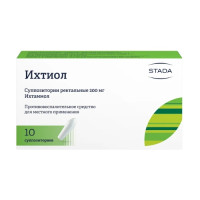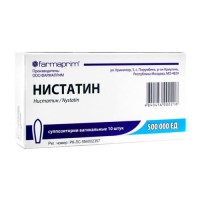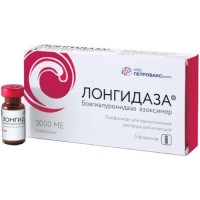Betadine® (Povidone-iodine) 200 mg vaginal suppositories
- $15.00
What is Betadine® Vaginal Suppository?
Betadine® vaginal suppositories are a type of antiseptic medication designed to treat gynecological infections. Each suppository contains 200 mg of povidone-iodine, a well-known antiseptic agent that helps combat bacteria, fungi, and other pathogens. Betadine® works by slowly releasing iodine, which penetrates cell walls of microorganisms, effectively killing them and helping to clear infections.
What Are the Uses of Betadine® Vaginal Suppositories?
Betadine® suppositories are used to treat various vaginal infections. Here are some of the main indications:
- Acute and Chronic Vaginal Infections: These include infections of mixed etiology, bacterial vaginosis caused by Gardnerella vaginalis, fungal infections (like yeast), and trichomoniasis.
- Post-antibiotic or Steroid Therapy Infections: Used to help restore balance in the vaginal microbiome after treatment with antibiotics or steroids.
- Surgical and Diagnostic Procedure Preparation: Betadine® is also used to prevent infections before surgical interventions involving the vagina or during diagnostic procedures.
Who Should Not Use Betadine® Vaginal Suppositories?
Betadine® suppositories are not suitable for everyone. Avoid using this medication if you:
- Have a known allergy to povidone-iodine or any of its other components.
- Have thyroid issues, as the iodine can interfere with thyroid function.
- Are undergoing or planning to undergo radioiodine therapy or scintigraphy—a gap of 1-2 weeks is recommended before or after such procedures.
- Have Dermatitis Herpetiformis, a rare skin condition.
- Are pregnant or breastfeeding, as iodine passes through the placenta and can be secreted in breast milk.
- Are a prepubescent girl, as the product is not suitable for children who have not reached puberty.
What Precautions Should You Take When Using Betadine®?
To ensure safe usage of Betadine® vaginal suppositories:
- Avoid using the suppositories with certain other chemicals like hydrogen peroxide, silver salts, or tannic acid, as they can react with iodine and decrease effectiveness.
- Do not heat the suppository before use, as this can alter its effectiveness.
- Avoid contact with jewelry, especially those containing silver, as iodine can cause tarnishing.
- Be cautious if you have kidney function issues, as regular use can lead to complications.
How to Use Betadine® Vaginal Suppositories?
Here is how you should properly use Betadine® vaginal suppositories:
- Dosing Instructions: Insert one suppository deep into the vagina every evening before bedtime. This is typically done for 7 days, but if your infection persists, the treatment may continue for up to 14 days.
- Method of Application: To enhance the release of the active ingredient, it is recommended to moisten the suppository with water before insertion. It’s important to continue treatment even during menstruation.
- Hygiene Tips: During the course of treatment, consider using sanitary pads for extra comfort and to prevent staining of underwear.
- Extended Treatment: For particularly stubborn infections, Betadine® can be used twice daily upon medical advice.
What Should You Do in Case of Overdose?
Overuse or misuse of Betadine® vaginal suppositories can lead to iodine toxicity, which may present symptoms such as:
- A feeling of fullness in the stomach, diarrhea, or nausea.
- Signs of renal impairment like anuria (absence of urine).
- Vascular issues such as hypotension or metabolic acidosis.
- Thyroid dysfunction such as hyperthyroidism or hypothyroidism.
In case of acute iodine intoxication, do not induce vomiting. Seek immediate medical attention. Supportive treatments might include intravenous fluids, gastric lavage, and potentially hemodialysis in severe cases.
Are There Any Side Effects Associated with Betadine®?
Like all medications, Betadine® can have side effects, although not everyone experiences them. Common side effects include:
- Allergic Reactions: This includes contact dermatitis, which may appear as redness, itching, or small blisters.
- Thyroid Disorders: Long-term use or use on extensive body areas can lead to hypothyroidism.
- Rare Side Effects: In extremely rare cases, people might experience anaphylactic reactions, angioedema (swelling under the skin), or metabolic issues like acidosis.
If you experience any irritation, rash, or signs of an allergic reaction, discontinue use immediately and consult your healthcare provider.
How Should Betadine® Vaginal Suppositories Be Stored?
Betadine® vaginal suppositories should be stored in a refrigerator at a temperature between 2°C and 8°C (35.6°F to 46.4°F).
Always keep the medication out of reach of children, and do not use it past its expiration date.
What Should You Do if You Have More Questions About Betadine®?
If you have any further questions about the use of Betadine® vaginal suppositories, it is always best to consult your healthcare provider.
They can offer personalized advice based on your medical history and specific health needs.
How to Open and Use the Packaging?
To open a suppository, tear along the perforated line of the blister pack.
Then, hold the plastic tabs and pull apart to remove the suppository.
Ensure that your hands are clean before handling the product to avoid contamination.
Can You Use Betadine® If You Are Pregnant or Breastfeeding?
No, Betadine® vaginal suppositories are not recommended for use during pregnancy or while breastfeeding.
The iodine in the medication can cross the placenta and is also excreted in breast milk, which could impact the baby’s thyroid function.









